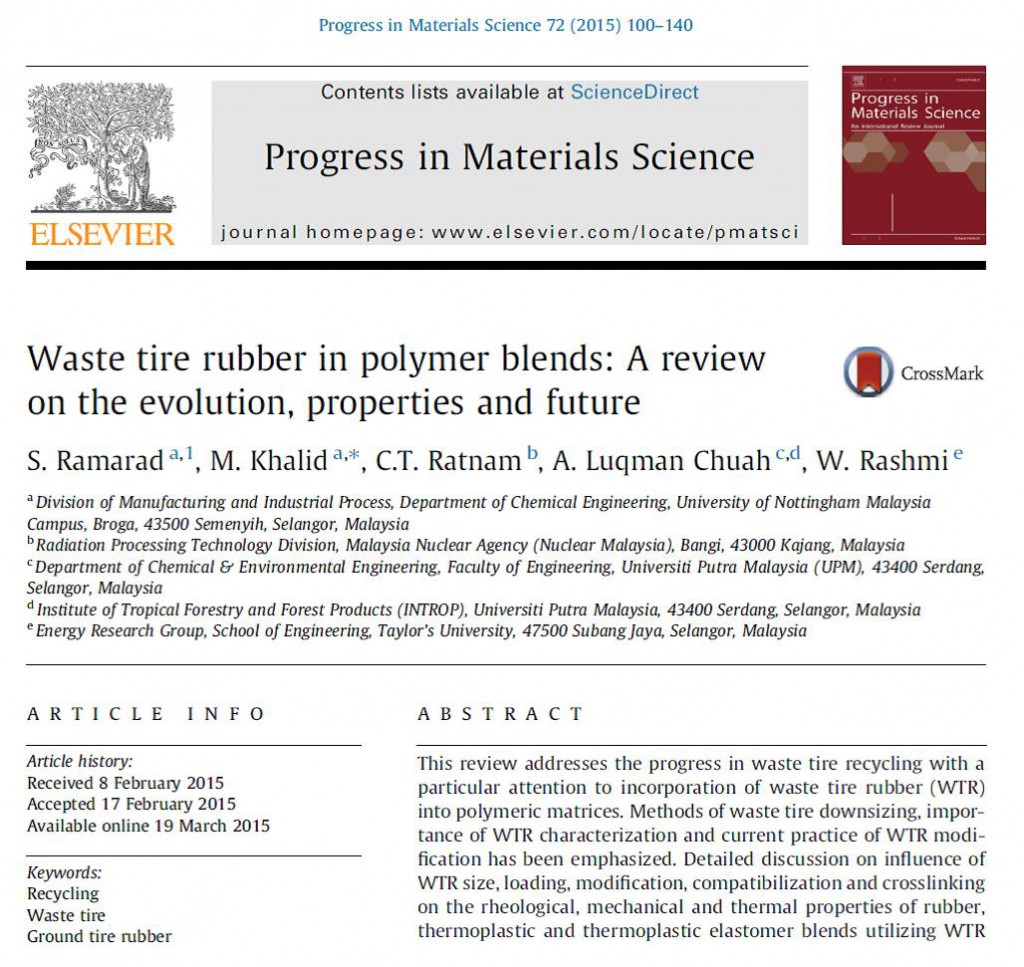
February 12, 2016, by Lisa Chin
Writing a review paper – A student’s perspective
This post is written by Suganti Ramarad, PhD candidate, Department of Chemical and Environmental Engineering.
As a PhD student, I feared the thought of writing my thesis. It’s an exhausting, time consuming and very much scientific writing journey. Hence, I broke my thesis into sections that I worked on continuously from the start of my PhD tenure. One of the writing sections I worked early on was the “Literature Review”. I read extensively to understand the depth of research in my field of study. At the end of my first year, I had written an extensive review which was then published in Progress in Material Science (IF: 27.42; http://dx.doi.org/10.1016/j.pmatsci.2015.02.004). Here, I’d like to share my experience of writing a review paper from the student perspective.
First and foremost, decide the scope of the paper. I decided to work beyond the scope of my thesis, to understand the coverage of research around the area of my thesis. The wider scope requires more reading, organization and coherence. Discuss with your supervisor and invest your energy in having a clear scope. A lot of time will be saved in organizing and formulating the structure of your review paper if there is clarity in the scope.
Second, read, read, read and annotate, annotate, annotate! Annotating is a simple act of adding short notes/comments/explanation to the reading material. This is the most crucial part of writing a review. By reading extensively, one would be swimming in the sea of information. However, it’s very (very very) important to annotate all the materials you read. I used a free software called “ReadCube”, where I stored the pdf files and annotated all the files I read, simply because I prefer reading from the screen. Use which ever method suits you, but the key is to read and annotate. Start with simple annotation such as article’s main theme and keywords.
Third, organise your materials. As I went along reading and annotating, I started organising my materials into groups. A clear scope will ensure this process goes smoothly. As I organise (and reorganise) the materials, I reread and added more related information to the annotations. Build your annotation by adding more specific and key findings of the articles related to the scope of review. This leads to formulation of the paper structure. At this point, I have read and annotated over 300 materials (journals, book chapters and articles), however, only about half of this materials was used in my review paper. The use of suitable materials enhances the strength of the paper. Annotations again help in organisations of the materials and formulation of paper structure.
Finally, write, write, write and revise, revise, revise. Start with the part of review you are most informed and aware of, guided by the formulated structure. Unintentional plagiarism is very common, especially when writing a review. Hence, build the content of the review from your annotations. Avoid reading the materials at this point. Remember, you are writing a review, do not just discuss the past literature. Ensure enough details are given and be able to underline the missing gaps and suggest future outlines of the research scope covered. If you are not confident, ask your supervisor. Always keep the conclusions, introduction and abstract to be written last. Once I was done with the first draft, I left it to sit for two week before I went back to work on it. At this point, my objective was to increase the coherence of the paper by adding, re-shuffling and removing the content. Do not be afraid to remove a big chunk of your write up if you find it challenging the coherence of your writing. Once I was happy with the paper, I humbly requested my fellow PhD mates to have a look at it. Of course my supervisors did their part on addressing the critical needs of the paper. Once I was satisfied with the paper content, organisation and coherence, I started the long (long… long…) publication process.
Be disciplined – tis is one key element to succeed throughout the process of writing a review paper. Plan out the task at hand and execute. I had a monthly and weekly planner to remind myself of the “to do list”. Keep up the motivation and get it done. Good Luck!
-
Post a comment

